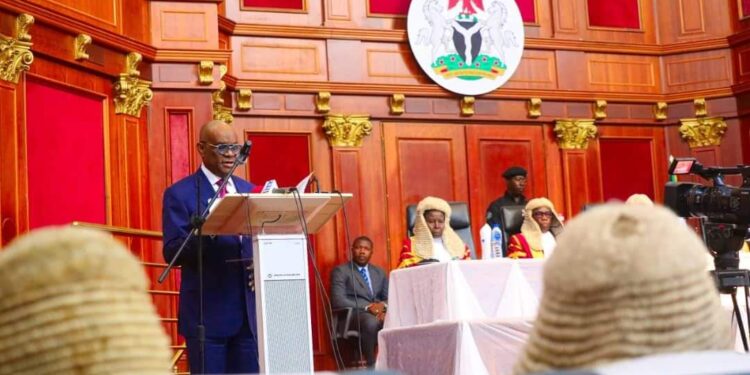The FCT Minister, Barr. Ezenwo Nyesom Wike is set to embark on land swapping and commence the sale of government properties, Elanza News can report.
It was gathered that a committee has been set up to look at the possibilities of the land swapping and the sale of government properties which should commenced in three months time after their final report.
To this end, Wike has expanded the scope of work of the Taskforce on issue of C of O, Mass Housing and Area Councils to include Land Swap and sale of government houses.
In the same vein, the Minister has extended the work period of the taskforce and submission of its report from one month to two months to accommodate the new task, explaining that there was no need for a separate taskforce as the existing one could carry out the addition duty.
In a brief meeting held at the Minister’s conference room on Tuesday, November 21, 2023, Barr. Wike said the expansion of the taskforce was necessitated by concerns raised on the FCTA Land swap and the sale of government houses projects, adding that the move was part plans for a total cleanup of the FCTA.
“We have had a lot of complains and we want to know details of the Land Swap and then the sale of federal government houses. There are so many complaints. There some houses that were built that have been abandoned. What is the position? Let us get the true documentation of the houses that are sold and the receipt of payment. Which have not been sold and which are being built but not completed, that are abandoned and are under the FCTA through the FCDA.
“This is important in order for us to have a total clean up. They are going to do it together. You function will extend to this area of land swap. Look at the areas where government and other people have had an agreement on land swap, look at the agreement, how favourable it is and make your recommendations and also the sale of government houses under the FCDA,” Wike said adding that though the job is tasking, but insisted it was the reason he extended the time by one month.
Wike expects the taskforce to do a good job and produce a good result, which will enable him to start the land swapping and the sales of government properties.
Wike urged all the agencies involved, especially Abuja Geographic Information Systems (AGIS) Development Control and the Department of Lands, who are also members, to work together with the taskforce to ensure the success of the assignment while also enjoining the taskforce to involve private valuers to expediate its work.
Present at the meeting, according to a statement issued by the Director of Press in the office of the minister, Anthony Ogunleye, were the Executive Secretary, FCDA and other senior officials of the FCTA and members of the taskforce.











